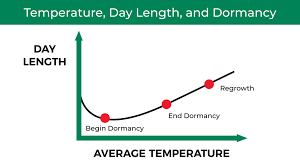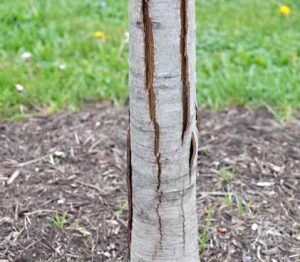Dead or Dormant: What’s the Difference?
Dormancy is a way for your landscape to stay thriving  during cold weather conditions, although it may not appear like it on the surface.
during cold weather conditions, although it may not appear like it on the surface.
What is Dormancy?
All living things have some form of circadian rhythm or biological clock. Plants prepare to undergo dormancy with the means of protecting their soft tissues from freezing temperatures, dry weather, or water and nutrient shortages. Instead of exerting their energy in an attempt to grow under harsh conditions, they rest until more favorable temperatures arise (i.e., Spring). This period of arrested growth allows roots to continue developing.
When is it Time for Dormancy?
Plants are primarily affected by temperature a nd sunlight. Prolonged periods of darkness and chilly temperatures signal your plants that it is time to become dormant.
nd sunlight. Prolonged periods of darkness and chilly temperatures signal your plants that it is time to become dormant.
If plants were to bypass the dormancy phase in the winter, the water stored in stems, leaves, and trunks would freeze, thus causing harm to the plant. This damage can be seen on trees when an early freeze comes before they have time to prepare. The bark is prone to disfigurement because the water in the outer layers freezes and expands, thus damaging the tree’s trunk. 
Testing for Dormancy
Fortunately, there are a couple of ways to determine whether your plant is dormant or simply dead. Trees and shrubs are subject to the snap-scratch test. Try snapping the branch of a tree or shrub. If it snaps easily and looks grey and brown throughout the inside, then the plant is dead. But if the branch is flexible, does not snap easily, or exhibits fleshy green or white insides, then the plant is still alive.
If the branch doesn’t break at all, then you can scratch a small part of its bark with a pocket knife or fingernail to look for that fleshy green and/or white inside.
Some Perennials and shrubs may need a more extensive examination to determine their status. The best way to check these plants is to dig them up and examine the roots. If plant roots are fleshy and healthy-looking, then replant and allow it some time to come out of dormancy. If the roots are dry and brittle, then discard the plant as it is dead.
If you still aren’t sure whether your plants are dormant or dead, give us a call, and we would be more than happy to take a look for you!

